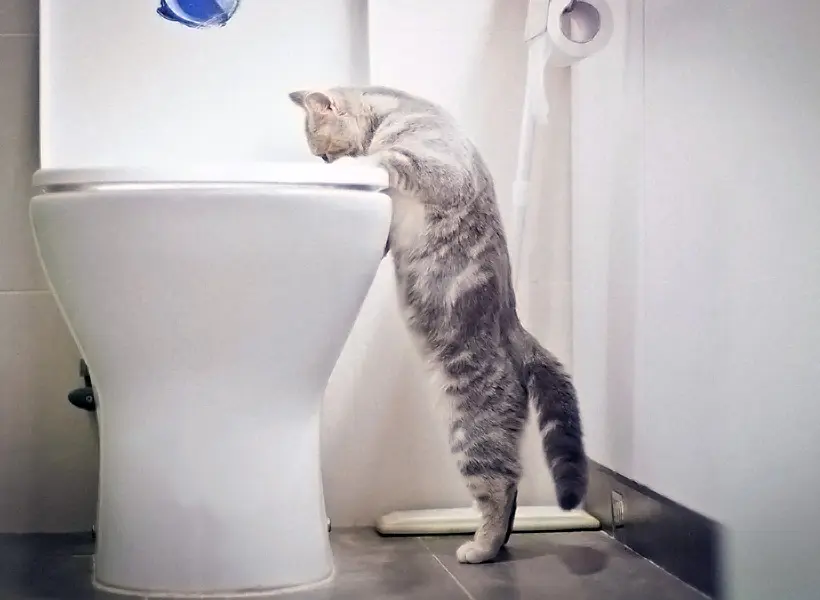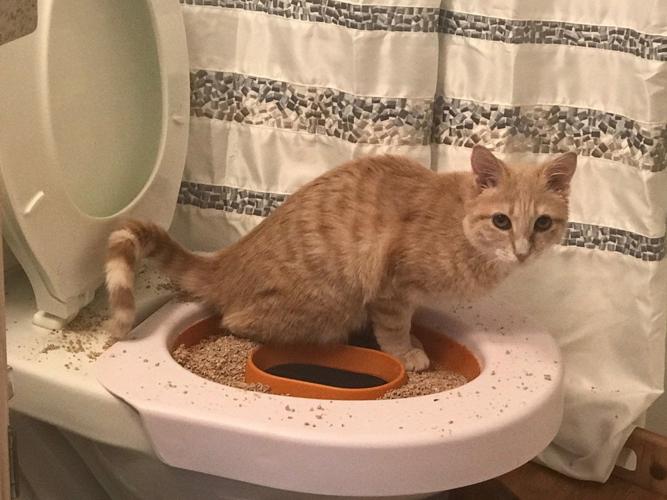Potential Issues of Flushing Cat Poop Down Your Toilet - Safeguard Your Pipes
Potential Issues of Flushing Cat Poop Down Your Toilet - Safeguard Your Pipes
Blog Article
Here down the page you can get additional extremely good material on the subject of How to Dispose of Cat Poop and Litter Without Plastic Bags.

Introduction
As pet cat proprietors, it's essential to be mindful of how we throw away our feline buddies' waste. While it might seem practical to flush feline poop down the bathroom, this practice can have destructive effects for both the atmosphere and human health.
Alternatives to Flushing
Fortunately, there are safer and a lot more accountable methods to throw away feline poop. Consider the adhering to options:
1. Scoop and Dispose in Trash
The most typical method of disposing of feline poop is to scoop it into an eco-friendly bag and throw it in the garbage. Make certain to utilize a committed litter inside story and dispose of the waste immediately.
2. Usage Biodegradable Litter
Opt for naturally degradable pet cat clutter made from materials such as corn or wheat. These trashes are eco-friendly and can be securely disposed of in the trash.
3. Bury in the Yard
If you have a lawn, think about hiding feline waste in a designated area away from vegetable gardens and water sources. Be sure to dig deep enough to stop contamination of groundwater.
4. Mount a Pet Waste Disposal System
Buy an animal garbage disposal system particularly designed for pet cat waste. These systems use enzymes to break down the waste, lowering odor and ecological effect.
Wellness Risks
In addition to ecological issues, purging cat waste can additionally position health dangers to humans. Feline feces might contain Toxoplasma gondii, a bloodsucker that can create toxoplasmosis-- a potentially extreme disease, specifically for expectant females and people with weakened body immune systems.
Environmental Impact
Purging cat poop presents unsafe microorganisms and bloodsuckers right into the supply of water, presenting a substantial risk to aquatic environments. These impurities can adversely influence aquatic life and concession water top quality.
Verdict
Liable pet dog possession expands past supplying food and shelter-- it likewise involves proper waste management. By avoiding purging feline poop down the toilet and opting for different disposal techniques, we can reduce our ecological impact and safeguard human wellness.
Why Can’t I Flush Cat Poop?
It Spreads a Parasite
Cats are frequently infected with a parasite called toxoplasma gondii. The parasite causes an infection called toxoplasmosis. It is usually harmless to cats. The parasite only uses cat poop as a host for its eggs. Otherwise, the cat’s immune system usually keeps the infection at low enough levels to maintain its own health. But it does not stop the develop of eggs. These eggs are tiny and surprisingly tough. They may survive for a year before they begin to grow. But that’s the problem.
Our wastewater system is not designed to deal with toxoplasmosis eggs. Instead, most eggs will flush from your toilet into sewers and wastewater management plants. After the sewage is treated for many other harmful things in it, it is typically released into local rivers, lakes, or oceans. Here, the toxoplasmosis eggs can find new hosts, including starfish, crabs, otters, and many other wildlife. For many, this is a significant risk to their health. Toxoplasmosis can also end up infecting water sources that are important for agriculture, which means our deer, pigs, and sheep can get infected too.
Is There Risk to Humans?
There can be a risk to human life from flushing cat poop down the toilet. If you do so, the parasites from your cat’s poop can end up in shellfish, game animals, or livestock. If this meat is then served raw or undercooked, the people who eat it can get sick.
In fact, according to the CDC, 40 million people in the United States are infected with toxoplasma gondii. They get it from exposure to infected seafood, or from some kind of cat poop contamination, like drinking from a stream that is contaminated or touching anything that has come into contact with cat poop. That includes just cleaning a cat litter box.
Most people who get infected with these parasites will not develop any symptoms. However, for pregnant women or for those with compromised immune systems, the parasite can cause severe health problems.
How to Handle Cat Poop
The best way to handle cat poop is actually to clean the box more often. The eggs that the parasite sheds will not become active until one to five days after the cat poops. That means that if you clean daily, you’re much less likely to come into direct contact with infectious eggs.
That said, always dispose of cat poop in the garbage and not down the toilet. Wash your hands before and after you clean the litter box, and bring the bag of poop right outside to your garbage bins.
https://trenchlesssolutionsusa.com/why-cant-i-flush-cat-poop/

As a keen reader about Don’t flush cat feces down the toilet, I imagined sharing that topic was really useful. Do you know about someone else who is very much interested in the niche? Take a moment to promote it. I cherish reading our article about Can You Flush Cat Poo or Litter Down the Toilet?.
Book With Us Today! Report this page